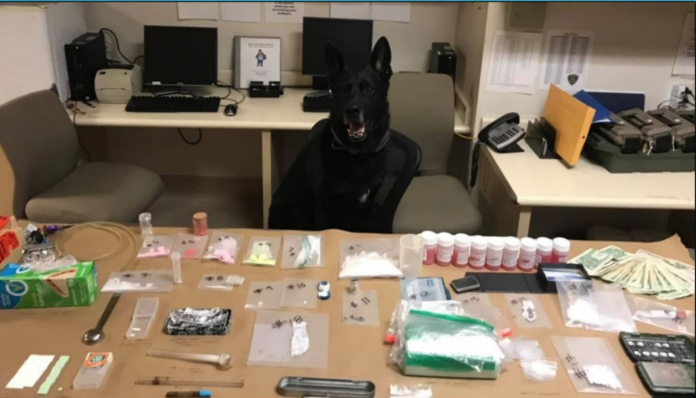Director of Fourth and Hope gives perspective on serving community members affected by alcohol or drug addiction
By ELLIE LEE — city@theaggie.org
The district attorney and Health and Human Services Agency looks to promote fentanyl awareness in Yolo County. According to the slides from the District Attorney and Health and Human Services Agency, 32 people passed away due to overdoses in Yolo County in 2020; eight (25%) of those deaths were caused by fentanyl. In 2021 so far, 12 people have died due to overdoses, of which seven (58%) were affected by fentanyl.
Yolo County District Attorney Jeff Reisig detailed the strength of the drug and discussed how some may approach the recovery process.
“In Yolo County, our first line of intervention is treatment, and we refer first time users and second time users to treatment centers where they can go get help,” Reisig said. “They can call the Yolo County Health and Human Services Agency and get routed to treatment centers near them.”
Reisig discussed how fentanyl is a powerful drug, but most young people do not know that they are actually taking it. People could potentially buy pills that are typically counterfeit, but the risk is still as high. The Department of Justice/Drug Enforcement Administration explained that counterfeit pills may contain a lethal amount of methamphetamine or fentanyl.
“They’re typically made in Mexico. They’re typically completely adulterated with things other than what people think they’re buying, including the fentanyl,” Reisig said. “That same risk goes for cocaine, heroin and methamphetamine in powder form.”
According to the U.S. Drug Enforcement Administration, the drug is 80 to 100 times stronger than morphine, and it is added to heroin for a greater effect of short term, intense euphoric feelings. Fentanyl decreases blood pressure and slows respiration. Reisig strongly advised against the drug.
“Don’t even think about it,” Reisig said. “Do something less risky than popping a pill that could be laced with fentanyl. Go for a jog. Do something else to get your endorphins up.”
The Health & Human Services Agency, which specializes in addiction treatment, and Yolo County District Attorney plan to create a public awareness campaign using social media. Ian Evans oversees all substance use disorder services in the Health and Human Services Agency, and he said there will be multiple components that include awareness around fentanyl and information about prevention.
“We’ve found through data review over the last several years that if we can work to support them through that initial two to four weeks of engagement through peers or through case management, it works toward successful completion of the treatment goals,” Evans said.
Evans explains that the initial two to four weeks where someone is engaged in treatment can be tough for many reasons. For example, this could be the first time in a while the person may not be using the drug. Also, sometimes they lose connection with family or friends when going in for treatment.
“Oftentimes, folks that are [selling] are also using and are heavily involved in using,” Evans said. “There’s treatment and there’s help out there.”
Fourth and Hope, a local organization that aims to clothe, shelter and feed those in need, also provides services to facilitate the recovery of those struggling with addiction. Director of Fourth & Hope Doug Zeck discussed the routine of a residential patient who struggled with alcohol or drugs, including learning about treatment and recovery.
“They have 40 hours of group or one-on-one counseling sessions a week,” Zeck said. “It’s very much like a full time job for them when they come in, going to these different groups and counseling.”
He observed that when people come in, they are not too engaged and feel sleepy and tired, since they are in a state of detoxing. He says that about 40 days later they start eating healthier, as they have been following the regular schedule, and they start engaging with the tools presented by counselors or groups. As they get closer to 90 days, they look at how to stay successful after leaving the program.
“They are separating from some relationships they had built,” Zeck said. “They’re having to develop new skills, ultimately healthy relationships.”
Yolo County residents can access recovery support services by reaching Yolo County Substance Use Disorder Services at (916) 403-2970. UC Davis students can also find support through Student Health and Counseling Services by calling them at (530) 752-0871 or by accessing their list of resources for recovery found here.
Written by: Ellie Lee — city@theaggie.org



